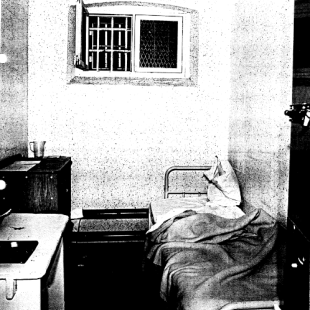First 'lack of care' verdict at an inquest into a self-inflicted death
Jim Heather Hayes died by suicide aged 18 at Ashford Remand Centre on 7 July 1982.
An inquest found that his death was due to 'lack of care'. This was a significant case, as it was the first time that a lack of care verdict had been accepted at an inquest into a self-inflicted death.
On 21 October 1982, the inquest found that the prison had failed to act on Jim's letters of distress that he sent home and failed to inform the prison governor, who then put Jim under solitary confinement.
This legal precedent shows a shifting understanding of accountaility, with 'lack of care' suggesting general liability, rather than pointing the finger at an individual. Marking a turn for lack of care verdicts, several similar verdicts were returned at inquests into prison and police custody deaths in 1983 and 1984. This made it easier for families and friends to campaign for action.
In 1983, there was an inquiry into Ashford Remand Centre and the inspector was highly critical of it.
Click below to read more about the Jim Heather-Hayes inquest, other lack of care verdicts and INQUEST's proposal for coronial reform in 1983.

This really goes to the heart of what INQUEST is all about. We contend simply that if you lock someone up - deprive them of their liberty - for whatever reason in whatever circumstances, then you undertake a responsibility for their welfare. This seems to us a fundamental principle. No society which reneges upon that can long remain or be entitled to call itself civilised.
INQUEST Annual Report, 1983-84










































